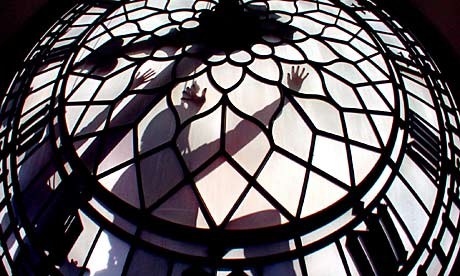
There's always a lost-in-translation risk when literary criticism moves to the news pages – those foreign fields in which discussions are always "spats", and those who are "attacked" always "hit back". So when Philip Pullman is "scathing" about the Man Booker prize, branding the present-tense narration of three books on the shortlist as a "silly affectation" which "does nothing but annoy", it's tempting to suggest that he might as well complain about the preponderance of novels with an odd number of words in the title, or with bluish-green covers.
But submerged beneath the knockabout – Pullman suggesting "I just don't read present-tense novels any more", Philip Hensher, whose longer, more considered comment piece sparked the story), complaining that novelists are "following fashion blindly" – there is an interesting point. It's clearly an exaggeration to suggest that the present tense is "everywhere ... like Japanese knotweed", but there does seem to be a lot more of it about these days than there used to be.
Not that it's anything new, or groundbreaking, or revolutionary – we can all cite lists of authors from the past who chose to express themselves in the present moment – but if Hensher's right that the present tense is no longer a "rare, interesting effect", then the obvious question is why?
In his original opinion piece, Hensher suggested that it's a simple question of bandwagon jumping, a creative-writing-course trick to bring a novel to life. "Writing is vivid if it is vivid," he says. "A shift in tense won't do that for you." But I have a suspicion there's a little more to it than that.
It's no accident that Christian Paul Casparis traces the recent upsurge in present-tense narration to the beginning of the 1960s – the moment that Harold Wilson proclaimed a new Britain forged in the white heat of technological revolution. As the pace of modern life accelerates, the present that we're all living in seems much more immediate, much more fragmentary. In a world of Watergate and Wikileaks we're much less prepared to accept a final version, an official story. The internet, mobile phones, Twitter: all gnaw away at our capacity to reflect; all push us to experience life as a series of unconnected moments. As we blog our lives away to the accompaniment of the 24-hour rolling news, can it be any coincidence that novelists are reaching for the present tense?

